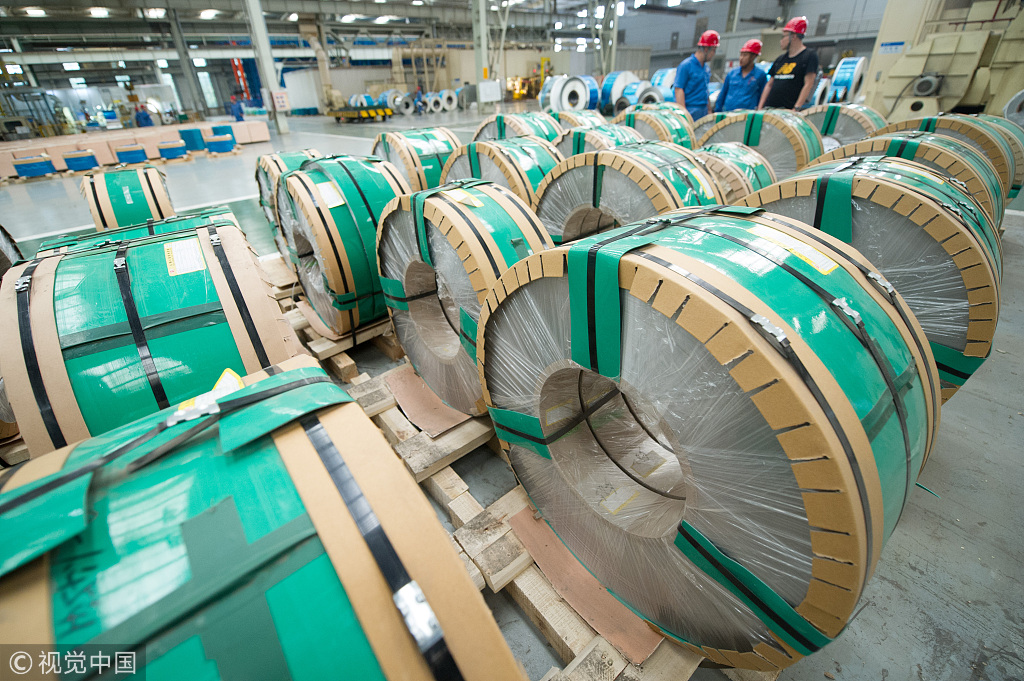External headwinds fail to stymie tech progress


Different research shows that these tariff increases, if they take effect, would have a limited impact on China. The companies that would be greatly influenced by the US increases operate in three industries: computer, electronic and optical products manufacturing, electrical equipment manufacturing, and machinery making.
Exports from these three industries to the US are expected to fall by 14 percent-or $7 billion-if US tariffs on a combined $50 billion of Chinese goods take effect, according to research led by Li Yimin, an analyst at Shenwan Hongyuan Securities Co.
This would lead to a 0.05 percent fall in China's GDP, Li said in the research note, stressing the impact of the US increases would be limited.
Ma Jun, a member of the policy committee at the People's Bank of China, the central bank, also said the overall impact would be limited. Based on his analysis, the planned US tariffs targeting $50 billion of Chinese goods are forecast to cut China's GDP growth by 0.2 percentage points. The country's GDP grew by 6.9 percent last year.
One industry official said external pressures would not derail the Chinese economy, but lead to increased innovation and entrepreneurship.
Chen Bin, executive vice-president of the China Machinery Industry Federation, said, "The escalating bilateral trade dispute has made the Chinese government and companies realize what core parts and technologies are urgently needed by China to ensure its industrial security and export channels, and that some products can only be achieved through self-innovation and a prolonged research process."
Trade in mechanical and electrical products between China and the US amounted to $100 billion last year, while China shipped $70 billion worth of goods including vehicle and industrial parts, cables, machine tools, pumps and valves to the US market, according to the federation.
As its manufacturing matures, China does not need to rely solely on machinery and parts imported from the US. Germany, Sweden, France, Japan and South Korea can meet the country's demand for various industrial parts and equipment, Chen said.




































